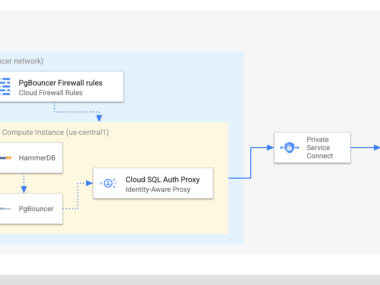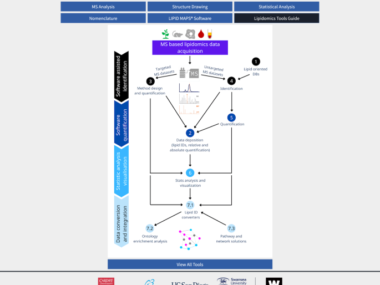Databases are essential for website functionality. They store, organize, and manage data efficiently. They enable dynamic content generation, which enhances the user experience and site interactivity.
Managing a website without a database is like trying to organize a library without a catalog. It’s potentially chaotic and inefficient. Databases provide the structure needed to store vast amounts of information. They store everything in a coherent and structured manner. This includes user profiles and product inventories.
They allow for quick retrieval of information. This lets websites respond to user queries in real time. It delivers a seamless and interactive experience. This backed-up storage system is vital for ensuring the integrity and security of the data. It builds trust with users. Databases also allow for scalability.
They ensure the website can handle more data or users without losing performance. Therefore, a robust database is not just an option; it’s a necessity. Any website aiming to offer dynamic content must have a reliable and professional user experience.

Credit: www.upwork.com
Understanding Why Databases Are Essential for Website Functionality!
Databases are essential for website functionality as they store and organize large amounts of data, allowing websites to retrieve and display information dynamically. They help in managing user data, content, product listings, and other relevant information that is crucial for website operations.
The Role of Databases in Web Performance
The role of databases in web performance is pivotal. Databases store and manage the information that websites rely on to function efficiently. Databases enable the dynamic actions we take for granted on websites. Without them, these actions would be nearly impossible.
Think of databases as the backbone supporting all the critical features. Databases make websites interactive and personalized.
Heartbeat of Interactive Websites
Interactive websites are alive with databases’ help. They store everything, from user profiles to product inventories. This data needs to be accessible at a moment’s notice for a site to react to user input seamlessly. Imagine clicking on your shopping cart, and nothing happens. That’s a site without the heartbeat of a database.
Data Retrieval Speed and User Experience
Fast data retrieval means happy users. No one likes waiting for a page to load. A fast database helps ensure that users get information quickly. Here’s how databases impact performance:
- Quick Access: Efficient databases provide swift access to data, preventing bottlenecks.
- Updated Content: They allow real-time updates to content, keeping a website fresh.
- Personalization: They store user preferences, enabling custom experiences.
Every second counts when it comes to retaining users. A sluggish website can lead to frustration and, ultimately, a loss of visitors.
Types of Databases Powering The Web
Databases act like the brain of a website. They store important information. Information like user data, product details, and posts. Websites need databases to work well. There are two main types of help websites. SQL databases and NoSQL databases are very popular. They help websites find and share information quickly and safely.
Sql Vs. NoSQL: A Comparative Synopsis
SQL databases are old but good. They organize data into tables. This makes them good for jobs that need lots of order. Think of SQL as neat filing cabinets.
In contrast, NoSQL databases are newer. They handle lots of data types easily. They scale big and fast. They are more like flexible storage bins than cabinets.
| Feature | SQL | NoSQL |
|---|---|---|
| Structure | Tables with rows and columns | Flexible: documents, key-values, etc. |
| Scalability | Vertical (more power to a single machine) | Horizontal (add more machines) |
| Consistency | High (strict rules) | Flexible |
SQL works well for stable designs. NoSQL shines with big, growing data needs.
Choosing The Right Database For Your Needs
Choosing depends on your website’s job. Tools to help decide are all around.
- Size of data: big data? NoSQL can handle it.
- Structure: Need strict organization? SQL is the way.
- Speed: For fast changes, NoSQL is often quicker.
- Resources: SQL might need less setup and training.
Think about these points. They guide you to a database that fits your website’s needs.
Optimizing Database Queries For Efficiency
Every website’s backbone is its database. It stores a wealth of information crucial for delivering content to its audience. A sliver of a second in response time makes a world of difference. This brings us to the art of optimizing database queries for efficiency. Databases must work at lightning speed. This ensures that websites remain responsive and user-friendly.
Impact of Query Optimization On Load Times
Improving how databases handle queries can drastically cut down on website load times. A well-optimized query serves up data swiftly, enhancing the overall user experience. Users want quick access to information. Search engines favor sites that load without delay. Thus, query optimization is key to both customer satisfaction and search engine rankings.
- Reduced Server Load: Efficient queries minimize the strain on servers.
- Improved User Experience: Faster load times mean happier users.
- Better Resource Management: Optimization ensures resources are used wisely.
Best Practices In Database Indexing
To further boost efficiency, practice prudent database indexing. Indexing is like a library catalog; it helps locate information without flipping through every page. Well-indexed databases find data at phenomenal speeds.
- Analyze query patterns: understand what data is frequently accessed and index appropriately.
- Use the right index type: Match index types to the needs of your database queries.
- Avoid over-indexing: Too many indexes can slow down write operations.
- Regular Index Maintenance: Keep indexes updated to ensure they remain effective.
Follow these indexing strategies to ensure that your database supports your website’s operational demands. With sharp query optimization and astute indexing practices, your website will not only function but also thrive.

Credit: www.facebook.com
Scalability Challenges And Database Solutions
Databases are the backbone of website functionality. As websites grow, they must handle more data and users. This growth can lead to scalability challenges. Choosing the right database solutions ensures the site remains fast, available, and reliable.
Handling High Traffic With Distributed Databases
When a website receives high traffic, a single database might struggle to keep up. Distributed databases spread the load across multiple machines. This ensures the website can handle large numbers of users. When data is split up and replicated, the risk of downtime is reduced. The performance also improves.
- Quick access to data
- Reduced server load
- Continuous availability
Vertical Vs. horizontal Scaling Techniques
When a website must scale, there are two main techniques: vertical and horizontal. Understanding them is key to effective database management.
| Vertical Scaling | Horizontal Scaling |
|---|---|
|
|
Vertical scaling (scaling up) means improving the existing server’s power. It’s often simpler but can become costly and has physical limits. Horizontal scaling (scaling out) involves adding more servers. It offers flexibility and can handle significant growth.
Database Security And Web Performance
Think of your website as a bustling city center. The database is the underlying infrastructure. Electric grids and water systems are vital for city operations. Databases ensure that websites function smoothly.
Databases store all the necessary information, from user profiles to product details. This makes it accessible to both users and owners. Beyond just storage, security and performance are pivotal. Here’s why.
Preventing Security Breaches And Downtime
Security breaches can compromise user data and erode trust. Databases equipped with robust security measures form a shield against attacks. A secure database means:
- Protected user information: safeguards personal data against unauthorized access.
- Limited vulnerability: Reduces the risk of cyberattacks that can disrupt services.
- Uninterrupted access: This ensures the website stays up and running, avoiding costly downtime.
Downtime not only affects credibility but also impacts search engine rankings. Continuous uptime is vital for maintaining user engagement and SEO success.
Encryption And Performance Overheads
Encryption is crucial for protecting data as it moves between the server and the user’s device. However, it can introduce performance overheads:
| Aspect | Encryption Impact | Overhead Management |
|---|---|---|
| Data Transit | Slows down | Use efficient encryption protocols |
| Server Load | Increases | Optimize server configurations |
| Response Time | May increase | Implement caching strategies |
While encryption ensures confidentiality and integrity, performance optimization ensures that the website remains fast and responsive.
Emerging Database Technologies And Web Future
As technology evolves, so do databases, which play a pivotal role in website functionality. New database technologies enhance the way websites store, organize, and process data. They ensure that web apps remain fast, reliable, and scalable.
By understanding these advancements, web developers can future-proof their projects. Here are some new ideas about how emerging database technologies will shape the digital landscape.
The Rise of Graph Databases In Web Applications
Graph databases have turned the tide in the way web applications handle data. They store data in nodes and edges, mimicking how humans naturally process information. This allows for swift navigation through complex relationships. Key benefits include:
- Improved data relationships: Unlike traditional databases, graph databases excel at managing interconnected data.
- Performance: They speed up data retrieval, even in deep relational queries.
- Flexibility: Adding new relationships or nodes is straightforward, making them highly adaptable.
Social networks, recommendation engines, and fraud detection systems primarily use graph databases. Businesses that leverage this technology gain a competitive edge with enhanced insights and quicker response times.
Edge Computing And Database Management
Edge computing brings data storage and computation closer to the data source. This results in lowered latency and improved performance. With edge computing, databases become more distributed and efficient.
| Feature | Advantage |
|---|---|
| Local Data Processing | Reduces latency for faster access. |
| Bandwidth Savings | Limits data transfer over networks, cutting costs. |
| Real-Time Analysis | Supports immediate decision-making. |
Retail, healthcare, and smart cities are already adopting edge computing. They use it to process large streams of data from IoT devices without lag. Edge computing is poised to be a game-changer. It’s especially important in areas that need real-time interactions.

Credit: m.facebook.com
Frequently Asked Questions on Why Databases Are Essential for Website Functionality?
What is the purpose of a website database?
A database on a website serves as its data storage backbone. It holds all the vital content, user profiles, and site interactions. This centralized system enables dynamic content display and user-specific experiences. These are crucial for a website’s functionality and user engagement.
How do databases improve website performance?
Databases streamline data retrieval and management. Efficient queries and indexing in databases significantly reduce loading times and server workloads. These optimizations result in faster website performance and an improved user experience. They elevate the overall quality of the website.
Can websites function without databases?
Websites with static content can function without databases. However, for dynamic and interactive sites, databases are critical. They manage user-generated content, e-commerce transactions, and personalized data. Static sites without databases cannot support these functions.
What types of databases do websites use?
Websites typically use SQL or NoSQL databases. SQL databases structure themselves and are well-suited for complex queries. NoSQL databases offer flexible, scalable data models. They are ideal for handling large volumes of unstructured data.
Conclusion of Why Databases Are Essential For Website Functionality
Effective website operation hinges on robust databases. They offer secure data management, an efficient user experience, and vital scalability options. Ignoring them risks functionality and competitiveness. Acknowledge databases as the backbone of your online presence. Invest in them to ensure success and growth in the digital realm. Why Databases Are Essential For Website Functionality.
Your website deserves that solid foundation. Why Databases Are Essential For Website Functionality.










1 comment